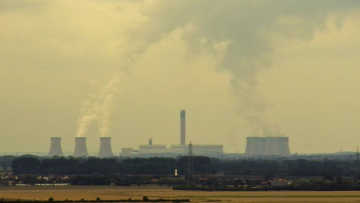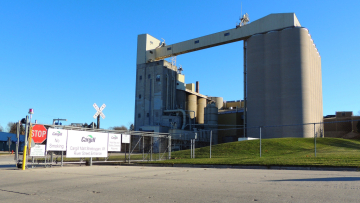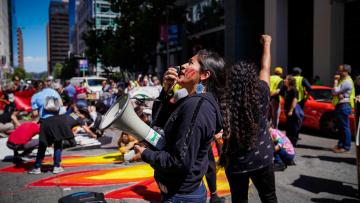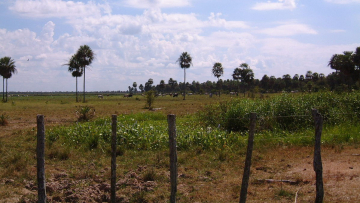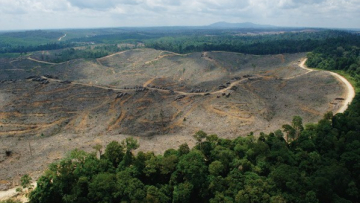On International Forests Day, new briefing paper urges banks and financiers to exclude harmful financing that negatively impacts primary and vulnerable secondary forests
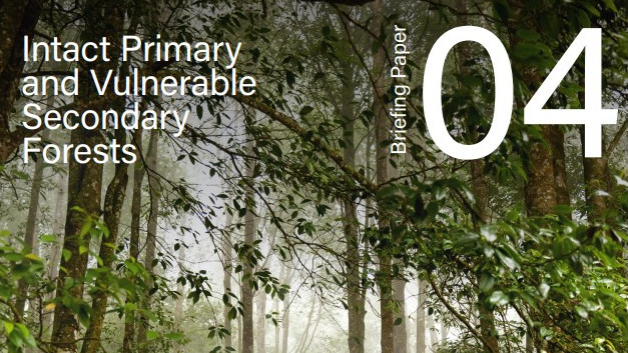
In recognition of International Forests Day, a new briefing paper, co-published by Friends of the Earth US, Environmental Paper Network, Biofuel Watch, Dogwood Alliance, and TuK Indonesia, calls on banks and financiers to prohibit direct and indirect financing to activities and projects which harm intact primary and vulnerable secondary forests.
The paper, called “Protecting biodiversity from harmful financing: Intact primary and vulnerable secondary forests,” details how banks and financiers are driving forest degradation and deforestation by financing sectors tied to high forest risks. The paper urges banks and financiers to stop financing deforestation and forest degradation by developing robust forest policies which also protect forest dwelling local and Indigenous communities.
In advocating why primary and vulnerable secondary forests must be protected, the paper discusses the irreplaceable values that forests possess in curbing climate change, preserving biodiversity, sustaining ecosystem functions, and supporting Indigenous and local communities’ livelihoods. The paper offers an inclusive definition of forests which banks should draw from, particularly in light of the controversies and complexities associated with international and national definitions of forests.
This paper is part of Friends of the Earth US’ Protecting Biodiversity from Harmful Financing briefing paper series, which underscores why banks and financiers should exclude harmful, unsustainable financing to activities and projects which negatively impact critical, at-risk ecosystems. Each briefing paper is dedicated to a key area as identified by the Banks and Biodiversity Initiative’s eight proposed No Go areas. Intact primary and vulnerable secondary forests are considered as No Go Area 4, which is Paper 04 of the series. Briefing papers focusing on No Go Areas 6-8 are forthcoming.
Key takeaways of this paper include:
- Banks and financiers are driving global deforestation and forest degradation by supporting high forest risk sectors
- Deforestation occurs in both primary and vulnerable secondary forests – banks and financiers should prohibit financing which causes, enables, or accelerates deforestation and forest degradation
- Key sectors driving global deforestation and forest degradation include but are not limited to palm oil, pulp and paper, beef, soy, logging, biomass, and rubber
- Banks and financiers should exclude financing to clients and sectors which may negatively impact intact primary, natural forests and vulnerable secondary forests
- A primary forest is a natural forest that is the result of biological and evolutionary processes and that has not been degraded by significant industrial, human driven activities. A key characteristic of primary, natural forests is that mature trees dominate the canopy and contains most or all of its native plant and animal species. Primary, natural forests include all successional age classes (young to old-growth) having no industrial human activities, including primary forests regenerating after wildfire. Primary, natural forests covers a range of related terms including “old growth forest”, “ancient forest”, “primeval forest”, “mature forests”, and “intact forest landscapes”
- Given the range of regeneration rates among different forest types, the exact age of a primary forest is less relevant than whether its natural, ecological processes have reached its climax. This detail is particularly important in cases where even if a forest has been previously disturbed or logged, if the forest still predominantly functions and retains the key characteristics of a forest at its climax, it should still be considered a primary, natural forest and be protected
- Vulnerable, secondary forests are forests which are regenerating largely through natural processes after significant human and/or natural disturbance of the original forest vegetation at a single point in time or over an extended period. In protecting the ability of secondary forests to recover and regrow, secondary forests should be considered as vulnerable when at risk of further degradation or destruction by planned or future harmful activities
- Defining forests can be challenging as different forest definitions reflect different forest management objectives and interests
- Banks and financiers should be aware of the complex dynamics of various forest management objectives and interests, and not over-rely on narrow forest definitions and assessments of third party or industry assessors in conducting their own due diligence
- Banks and financiers must be aware of the controversial legacy of forest definitions across international, regional, and local contexts, and develop forestry policies which are rooted in the basic, overarching aim to stop deforestation and protect forest dwelling local and Indigenous communities
- Banks and financiers should coordinate and complement institutional forestry policies holistically with other thematically crosscutting policies on climate, biodiversity, and Indigenous Peoples
- Managing both primary and vulnerable secondary forests sustainably and equitably is critical for meeting other interdependent objectives, including safeguarding community rights, solving climate change, and halting biodiversity loss.
- Banks and financiers should adopt no deforestation policies, and establish policies which favor proforestation, which is the concept of allowing and enabling continuous forest growth that is uninterrupted by active management or timber harvesting
- Banks and financiers should embed the principles of free, prior, informed consent in their forestry policies
Friends of the Earth US is part of the Banks and Biodiversity Initiative, a civil society coalition which advocates that banks and financiers strengthen their biodiversity policies and practices in order to halt and reverse biodiversity loss. Learn more at Banksandbiodiversity.org.
Reposted from Friends of the Earth US' website here.

